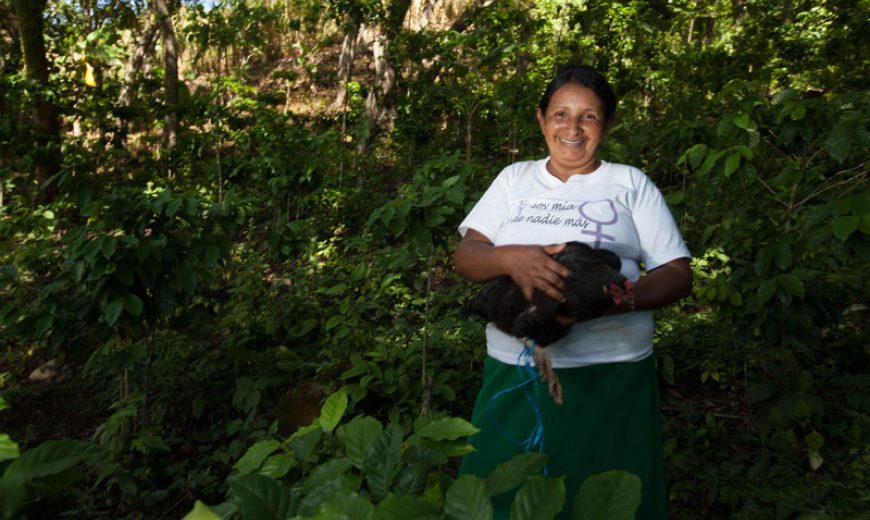6 Mar 2015
Gender Equality: Good for Women, Business & Development
Women in the communities Fairtrade serves often face barriers to participation. A new Fairtrade report highlights how gender equality can benefit not only women, but also the organizations and the businesses they work with, as well as the wider community.

Photo by Sean Hawkey
Although women make up nearly half of the agricultural workforce in developing countries[1], they account for just 25 percent of the1.5 million farmers and workers in Fairtrade certified producer organizations.
Today on International Women’s Day, the Fairtrade Foundation launches Equal Harvest (Report will be available from March 8), a new study that demonstrates how enabling more women to join and actively participate in the organizations that grow our products not only benefits women, but also supports development and improves business.
Legal, social or cultural norms often converge to create barriers to women’s participation. For example, cooperative membership may be dependent on owning land or crops, but in some countries land rights may be traditionally held by men. In some cases agricultural work may be deemed inappropriate for women, or they may be expected to undertake most of the household work, giving them less time to participate in producer organizations.
In the report, a female banana farmer in the Dominican Republic said that enabling women to become members of producer organizations is important because "it gives women the right to vote, to participate in decision making, to receive benefits and to live with dignity."
Although many Fairtrade certified organizations choose to invest a portion of Fairtrade Premium in projects that benefit women, such as access to childcare or training to help them diversify their income, Fairtrade says that increasing the participation of women farmers could boost productivity, improve development outcomes for communities, and provide opportunities to launch new products.
For example, a number of brands now market coffee exclusively grown by women. Fairtrade Africa and the Fairtrade Foundation recently launched a three-year Women In Coffee project with a grant from the Big Lottery Fund, which will transfer ownership of coffee bushes to women coffee farmers in Kenya, provide them with training on good agricultural practices, and brand their produce as ‘women’s coffee’ for the domestic market.
"Ensuring that women farmers have the same opportunities to participate as their male counterparts will not only increase their income and their influence, but it could also boost the bottom line for businesses and improve development outcomes for communities in some of the world’s poorest countries,” said Barbara Crowther, Director of Policy & Public Affairs at the Fairtrade Foundation.
Producer organizations that have taken active steps to increase the participation of women include Kuapa Kokoo, the Ghanaian cocoa cooperative that owns 45% of Divine Chocolate, which has formed district level gender committees. Almost half of its National Executive Council members, including the current President, are women. In Morocco, 60 women farmers challenged a long-standing local tradition that a woman’s husband or father was the sole breadwinner, when they established Tighanimine, the first Fairtrade argan oil cooperative. Another small producer group, in India, has used funds from the government to set up an all-women producer organization in Odisha.
“While there are already some great examples of Fairtrade producer organizations working to remove the barriers to women’s participation, there is still much more work to be done,” Dr Dr. Tsitsi Choruma, Fairtrade International’s recently appointed Senior Advisor on Gender.
“Achieving gender equality for women farmers will require a concerted and collaborative effort from everyone in the supply chain, so I look forward to working closely with producers and with other partners as we seek to ensure that women get their fair share of the benefits of Fairtrade.”
You can read the full report as of Sunday, March 8 here http://www.fairtrade.org.uk/en/what-is-fairtrade/policy-briefings-and-reports
[1] 43%. Source: FAO (2011) The State of Food and Agriculture: Women in Agriculture – Closing the gender gap for development. www.fao.org/docrep/013/i2050e/i2050e.pdf